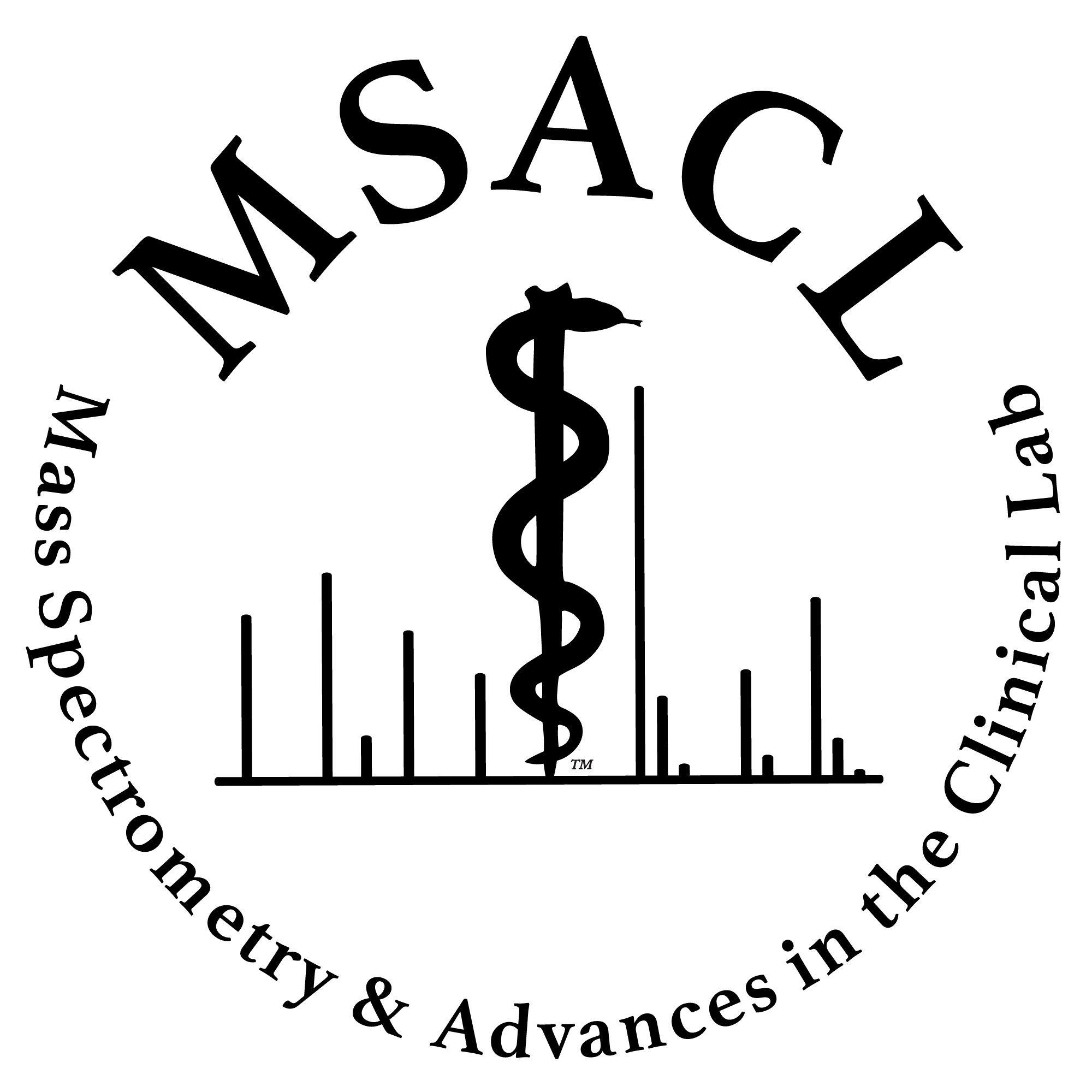|
Abstract Introduction
Niemann-Pick disease (types A,B,A/B) is a genetic lysosomal storage disorder disease caused by deficiency of acid sphgingomyelinase, an enzyme that catalyzes the breakdown of sphingomyelin into ceramide. The clinical testing of plasma Lysosphingomyelin (LysoSM), one of many phospholipids that are elevated in disease, may potentially serve as an efficacy biomarker for Niemann Pick disease patients who are receiving targeted therapy. We sought to develop a bioanalytical method for LysoSM for clinical use.
Methods
An analytical method was developed using a TX-4 HPLC system (Thermo-Fisher) with Agilent® 1200 pumps (Agilent Technologies, Inc.) and a Sciex® 5500 (Danaher) triple quadrupole mass spectrometer. Calibration curve based on purified LysoSM (Matreya) was prepared in depleted serum (Golden West Biologicals). Sample preparation consisted of an initial isotope dilution using a deuterated heavy isotope internal standard (LysoSM-2H7) followed by liquid-liquid extraction, evaporation and reconstitution using a second heavy isotope (LysoSM-2H9). A reversed phase C18 analytical column (3x50mm) was used with an acidified water/acetonitrile solvent gradient to achieve chromatographic separation of physiological LysoSM. Positive mode electrospray ionization (ESI) was used for detection in Multiple Reaction Monitoring (MRM) mode.
Results
Analytical range was 1 – 1000 ng/mL (up to 10,000 ng/mL with dilution). Inter-assay precision ranged from 4.8–8.5% and inter-assay accuracy ranged from 100.4-108.5%. A reference interval for adults was developed using residual specimens. No interference was observed in the presence of hemolysis, icteric or lipemia. No difference in result was observed when using collection tubes containing EDTA, Heparin or gel barriers. Specimen stability was interrogated at ambient, refrigerated and frozen conditions. It was observed that sphingomyelin (a precursor that circulates at >1000x concentration relative to LysoSM) could be deacylated into LysoSM under laboratory conditions, requiring special processing to ensure specimen integrity.
Conclusion
A fully validated assay for LysoSM has been validated and may be useful in the investigation of acid sphingomyelinase deficiency.
|

